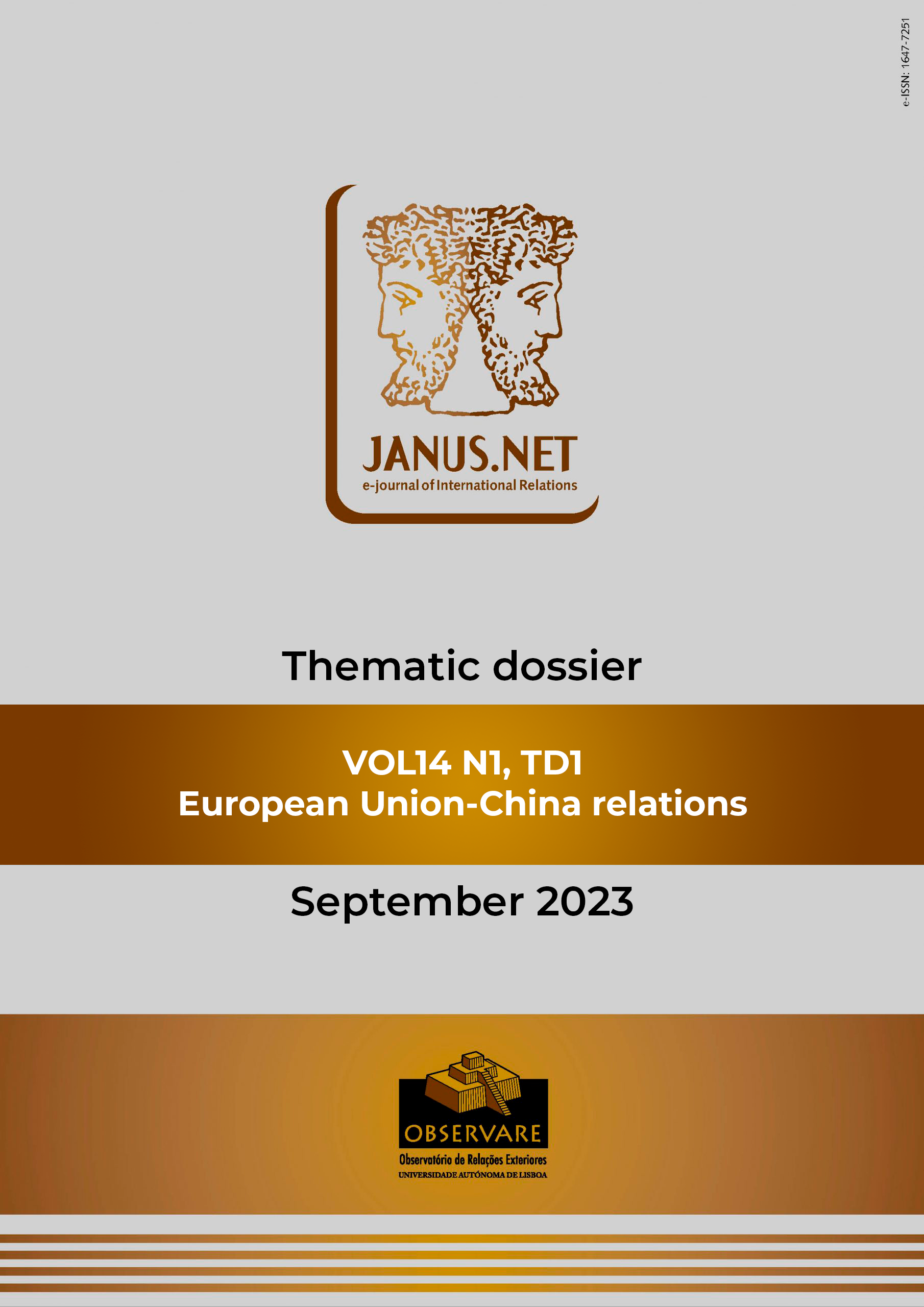UKRAINE GEOPOLITICAL EUROPEAN FLASHPOINTS VIS-À-VIS INDIA AND CHINA: FROM AMBIVALENCE TO STRATEGIC ENGAGEMENT
DOI:
https://doi.org/10.26619/1647-7251.DT0123.5Palavras-chave:
Guerra na Ucrânia, União Europeia, Índia, República Popular da China, Federação Russa, Ambivalência Estratégica, NeutralidadeResumo
A invasão militar Russa na Ucrânia, tem por objectivo combater a sua deriva para Oeste. Este conflito armado marca uma escalada dramática de rivalidade e, assinala uma encruzilhada importante para a segurança global, simbolizando uma clara alteração no ambiente unipolar no contexto de segurança mundial. Além deste facto, demarca também o renascimento da conflictualidade à guisa da Guerra Fria e ainda, uma reconfiguração global do equilíbrio de poderes. Alguns analistas políticos vêm estes factos como uma manifestação da crescente antipatia do Kremlin em relação aos EUA, à OTAN e, implicitamente, ao expansionismo pós[1]Guerra Fria da União Europeia (UE), na antiga esfera de influência da URSS. A resposta da comunidade dos estados à invasão da Ucrânia foi mista: Por um lado, houve uma série de condenações que conduziram a um ambiente internacional para uma nova espécie de Guerra Fria, (re)alinhando a UE, a OTAN e os EUA em várias questões importantes. Por outro lado, outros estados têm assumido uma postura tácita de condescendência, que prioriza a proteção de seus próprios interesses imediatos. Enquanto isso, potências ideológicas, nucleares e económicas como China e Índia, adotaram uma ambivalência estratégica em relação aos acontecimentos na Ucrânia. A China, como membro do Conselho de Segurança das Nações Unidas (CSNU) e como potência ideológica alternativa, enfrenta também uma espécie de paradoxo com características Chinesas. A Índia, como a sexta maior economia do mundo e uma potência emergente dedicada à autossuficiência, aproveitou a oportunidade para capitalizar a cooperação estratégica trilateral Rússia-Índia-China. Estes factos são significativos, pois, juntos, a China e a Índia respondem a mais da metade de todo o fluxo de Investimento Directo Externo para países de baixo e médio rendimento. No entanto, à medida que a guerra avança, o apelo da neutralidade construtiva inicial, começa a ter também os seus efeitos negativos. A China, acaba por não beneficiar totalmente das suas legítimas opções pacíficas, prejudicando as suas parcerias econômicas com a UE e reforçando as percepções antagonistas na guerra comercial em relação aos EUA, à luz do isolamento iminente da Rússia. Finalmente, as eleições presidenciais de 2024 nos EUA, provavelmente, adicionarão mais incerteza a este cenário. Em última análise, esta investigação clarifica como o envolvimento da Índia e da China pode produzir efeitos no contexto da segurança da UE. A investigação utiliza uma metodologia indutiva e combina análises de eventos, fontes primárias qualitativas, referências jornalísticas de momentos chave, considerando a escola do realista das relações internacionais. O texto está organizado da seguinte forma: (1) Introdução: O novo jogo da Guerra fria e a escalada da guerra; (2) Decodificando a ambivalência estratégica da Índia; (3) UE e China: distanciamento diplomático ou engajamento construtivo? (4) China-Rússia: Paradoxo com Características Chinesas; (5). Conclusão.


